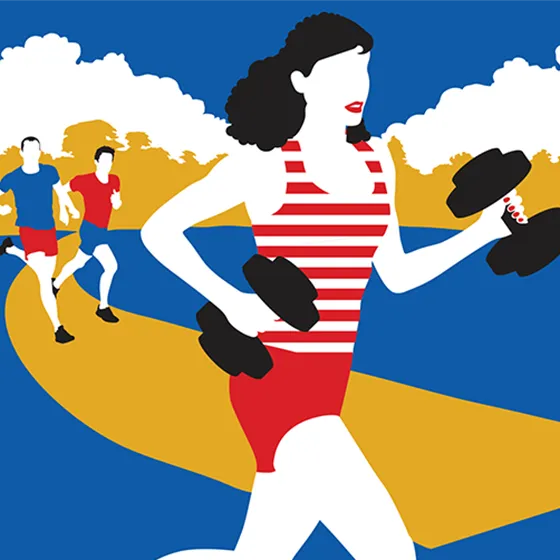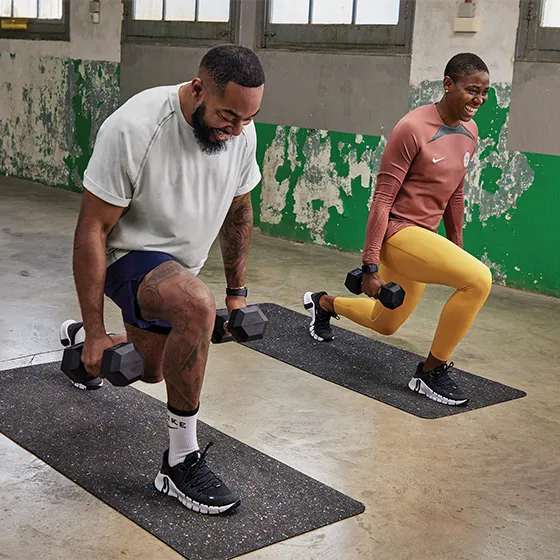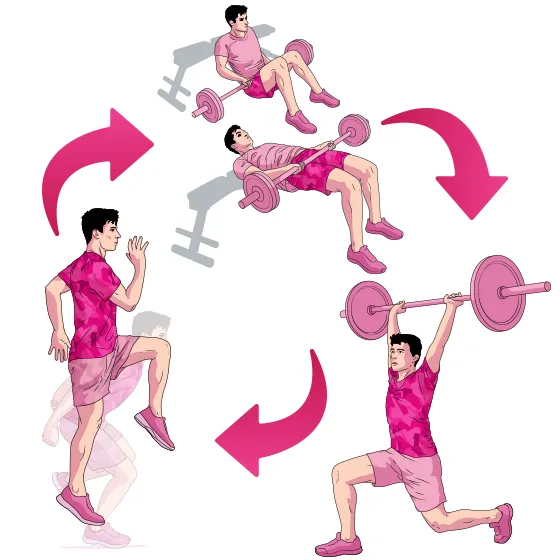You’ve laid the foundations, so how do you prevent yourself from choking or second-guessing yourself when it comes to a big match, race or PB attempt? “Self -regulation and emotional control are vital if you want to execute your skills or gameplay effectively, focus on the right things at the right time, and make good decisions under pressure,” says Dr Kate Hays, the FA’s Head of Women’s Performance Psychology. “This requires proactively working on the mental side of your game and developing your competition mindset.”
Women are often painted as less confident and more prone to anxiety, but how does this play out on the pitch? “We know that women are less likely to play sport than men, with fear of judgement often cited as a reason,” Kate notes. But performance mindset is more about the individual than their gender. “Everyone is subject to diff ering demands and has a differing capacity to deal with these demands and different coping resources,” she explains. If you want to maintain clarity and confi dence when it comes to the crunch, you need to develop an understanding of yourself and how you operate, and learn to self-regulate so that you can maintain focus, adapt and make decisions under pressure.
Visualisation works well with closed-skill sports, Kate adds. “When I worked with British Diving, they would visualise their dives prior to execution, and I would take them through visualisation of competitions during the lead-in phase to enhance confi dence and increase familiarity,” she says. In fact, visualisation is such a powerful tool that simply imagining yourself, say, throwing a ball or lifting a weight can improve performance or increase muscle strength by 20-30%.
Working on your breakthing technique could net your major marginal gains
Breathwork is another key tool for your kitbag. “For many athletes, breathwork is a fundamental part of performance as it can hugely aid self-regulation and emotional control,” says Kate. “Focus, concentration and the ability to enter ‘the zone’ are important aspects of sport,” agrees international breathing expert Patrick McKeown. “Using your breath, you can consciously access this psychological control. Once you master this skill, it permeates every aspect of your performance.”
Most of us don’t think about how we breathe, but learning to breathe properly can increase anaerobic capacity, lessen fatigue and promote anaerobic glycolysis (a means of producing energy during short, intense efforts) with lower risk of injury, he explains. “Athletes who breathe too hard during exercise will gas out too quickly,” he adds. “They become physically and mentally exhausted and lose performance before they know it.”
The simplest solution? Close your mouth, at least during mild-t0-moderate intensity exercise. Breathing through your nose engages your diaphragm, which improves its function and strength, and has knock-on benefits for lung gas exchange, circulation, oxygenation and recovery. It also calms the nervous system and keeps your airways nice and clear.
Incorporating breathing exercises into your routine will teach you to breathe more efficiently, save you energy and help you maintain focus during exercise, explains Patrick, who offers free guided breathing tracks on the Oxygen Advantage YouTube channel. The clear advantages of regular practice include better endurance, better sprint rep performance, increased mental clarity, reduced performance anxiety, reduced injury risk and better sleep. Worth a try? We thought so…























